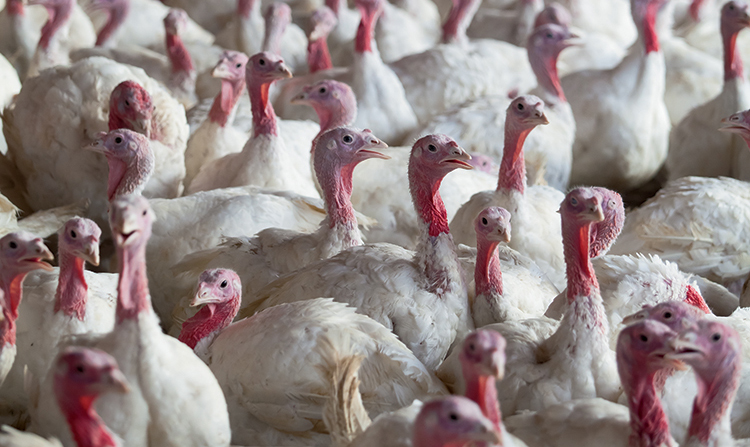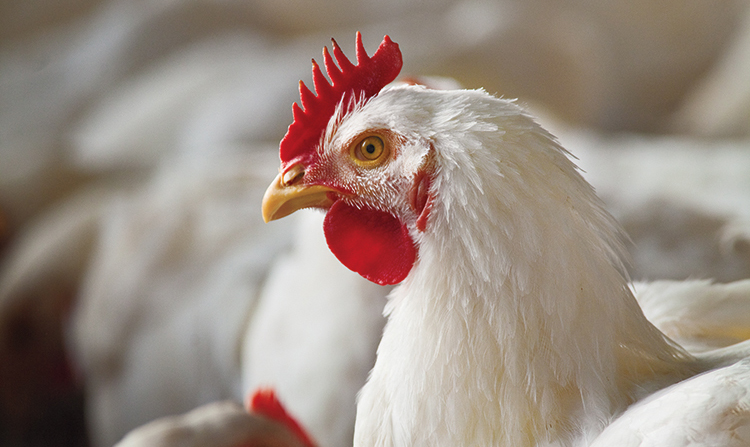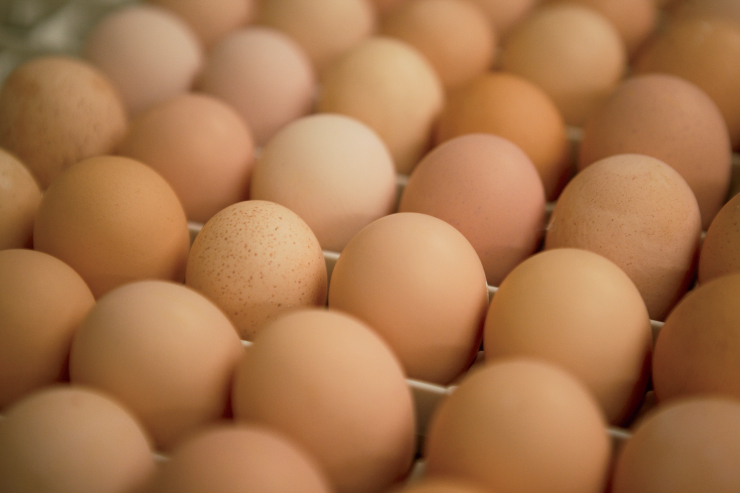Home > Michigan > Michigan Crops & Livestock > Michigan Poultry in Motion
Michigan Poultry in Motion
In partnership with: Michigan Department of Agriculture & Rural Development

At Sietsema Farms in Allendale, what’s left behind is helping to move the poultry operation forward.
With more than 1.4 million turkeys raised on the farm each year, it’s clear what that means in the way of turkey manure. One could only guess at the tonnage, but the Sietsemas have found a method
to turn the waste into energy – or at least steam.
Adding value
“We have been developing our long-term strategy for environmental awareness and a comprehensive nutrient management plan,” says Rick Sietsema, CEO of Sietsema Farms and son of Harley Sietsema, who started the operation.
“We’ve been trying to understand if there’s a way to add value to manure as opposed to looking at it as a waste material. So with our waste energy facility, we’re trying to find a way to convert that manure into an odorless product that will still have some nutrient value to the farming community, while also providing some added value by getting energy out of it.”
Sietsema Farms began construction of a biomass gasification system at its Howard City feed mill a few years ago. It is already paying off in multiple ways.
Sietsema’s recent gasification project is just one example of how Michigan poultry farms are finding innovative ways to do business to either lessen their impact on the environment, satisfy customer demands or simply find ways to be more efficient.
![Michigan Poultry [INFOGRAPHIC]](https://eadn-wc01-4177395.nxedge.io/wp-content/uploads/2020/05/Screen-Shot-2015-04-01-at-3.19.52-PM.png)
Economic Growth
Whether it’s turkeys, broilers or eggs, the state’s poultry industry is an important spoke in the state’s economic wheel. Overall, poultry is the ninth-ranked agricultural commodity in Michigan. The state ranks ninth in the nation in production of eggs and 15th in turkey production.
Growth is also happening for Miller Poultry, a broiler operation with several facilities and farms in southern Michigan.
“We grow every year, and we try to add about 10 percent of our capacity,” says Mark Tilbury, the operation’s live production manager who oversees the company farm in Bronson.
“We are continuing to look for new barns and new growers, and because of our locations in Michigan and Michigan’s friendliness toward agriculture, we focus there.”
Miller Poultry has had particular growth in organic chickens, boosted primarily from being in close proximity to large retail grocery stores.

Going Organic
Herbruck’s Poultry Ranch in Saranac has also gone organic in recent years. The largest egg producer in Michigan, and 12th largest in the country, Herbruck’s began producing organic eggs in 1999. It quickly grew to 1.25 million organic laying hens, and today, organic eggs are the fastest-growing segment of the business.
“We see tremendous value in organic production as consumers continue driving demand for eggs that carry the ‘USDA Certified Organic’ seal,” said Greg Herbruck. “Our goal is always to be on the cutting edge. Our focus on producing certified organic eggs is part of that effort to be ahead of the game.”
Stephen Herbruck adds that taking on efforts to boost sustainability will remain a focus of the company in the years ahead, including the unique and successful manure to fertilizer system.
“We continue to look at everything from water use to energy efficiency opportunities, with a focus on finding new ways to provide a safe, quality product
in a sustainable way,” Stephen Herbruck said. “We know that our customers are interested in where their food comes from. In addition, looking at areas like energy and water use puts our business on a stronger footing into the future.”
Herbruck’s is widely recognized as a leader for its organic layer operation, and all signs point to continued growth into the future as Michigan’s poultry sector continues to expand.




